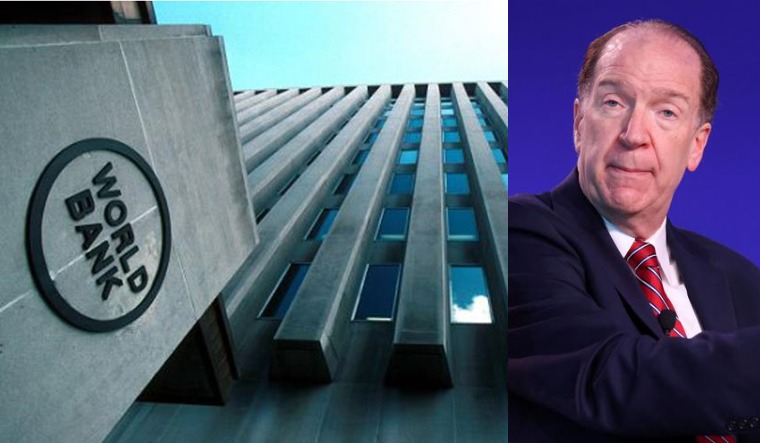World Bank president David Malpass said the war in Ukraine and its impact on food and energy prices, as well as the availability of fertilizer, could spark a global recession.
“As we look at global GDP ... it's hard right now to see how we avoid a recession,” he said. “The idea of energy prices doubling is enough to trigger a recession by itself.”
He said the economies of Ukraine and Russia were expected to slow significantly. The economies of Europe, China and the United States have slowed down. Developing countries were being hit even harder given shortfalls of fertilizer and food stocks and energy supplies, he said.
"The idea of energy prices doubling is enough to trigger a recession by itself," he said. In China, he said the relatively sharp slowdown in growth was based on the Covid-19 pandemic, inflation and the pre-existing real estate crisis the country had been facing.
The US economy has shrank by 1.4 percent in the first quarter of this year.
Russia is the largest wheat exporter in the world. Ukraine produces around 6 percent of all food calories traded in the international market. The war in Ukraine has hit global grain supply and with limited supply, prices of the commodity have soared globally.
India is ranked second in the production of wheat in the world. On May 13, Indian government banned wheat exports to control rising domestic prices and meet the foodgrain requirement of neighbouring and vulnerable countries.
The Institute of International Finance (IIF) slashed its 2022 growth outlook for global output in half, citing the economic effects of Russia's invasion of Ukraine, China's response to a COVID-19 wave and tighter monetary policy in the United States, Reuters reports. "The IIF cut its forecast for global GDP growth to 2.3 percent from 4.6 percent, with the G3—the United States, the euro area and Japan—growing at a 1.9 percent rate this year. They expect China's growth to decelerate to 3.5 percent from 5.1 percent in the previous estimate," IIF economists wrote in a report.
Meanwhile, speaking at a news conference in Tokyo, President Biden said that the American economy was better positioned than other countries. Biden said he did not believe a economic recession in the US is inevitable despite record high inflation and supply shortages partly caused by Russia's invasion of Ukraine.




